Sorcerers are one of the most unique spellcasters in D&D 5e. Where Wizards study hard and Warlocks make deals with their patrons, a Sorcerer’s power comes from within themselves.
This power might come from deep within their bloodline or be awakened by some other powerful being. It might even just manifest as a type of fate.
Whatever the case, Sorcerers learn to wield this arcane power in unique and astounding ways.
While they might not have the versatility of their Wizard counterparts, don’t make the mistake of thinking of Sorcerers as a cheap imitation. Pushing the boundaries of what other spellcasters might think is possible, Sorcerers prove that there’s no substitution for raw talent!
Nevertheless, this is one of the trickier classes to play in D&D 5e. As such, I’m hoping you find this guide helpful on your sorcerous journey to harness the wellspring of power within you.
This is the Ultimate Class Guide to the Sorcerer in D&D 5e!
The Sorcerer Table
You will want to be mindful of the Sorcerer Table as you level up. This shows the features you gain at each level as well as other important things that you need to know for playing your Sorcerer.
To keep it from being overwhelming in this guide, I’ve split the Sorcerer Table up a bit.
Here you will see your proficiency bonus, features gained, and the Sorcery Points you have at each level.
When we cover Sorcerer Spellcasting later in this guide, I’ll include the rest of the information on tables specifically covering how many spells you can know and cast.
You can find the Sorcerer class on page 99 of the Player’s Handbook.
| Level | Proficiency Bonus | Features | Sorcery Points |
| 1 | +2 | Spellcasting, Sorcerous Origin | – |
| 2 | +2 | Font of Magic | 2 |
| 3 | +2 | Metamagic | 3 |
| 4 | +2 | Ability Score Improvement, | 4 |
| 5 | +3 | – | 5 |
| 6 | +3 | Sorcerous Origin Feature | 6 |
| 7 | +3 | – | 7 |
| 8 | +3 | Ability Score Improvement | 8 |
| 9 | +4 | – | 9 |
| 10 | +4 | Additional Metamagic | 10 |
| 11 | +4 | 11 | |
| 12 | +4 | Ability Score Improvement | 12 |
| 13 | +5 | 13 | |
| 14 | +5 | Sorcerous Origin Feature | 14 |
| 15 | +5 | 15 | |
| 16 | +5 | Ability Score Improvement | 16 |
| 17 | +6 | Additional Metamagic | 17 |
| 18 | +6 | Sorcerous Origin Feature | 18 |
| 19 | +6 | Ability Score Improvement | 19 |
| 20 | +6 | Sorcerous Restoration | 20 |
Sorcerer Hit Points, Proficiencies, and Starting Equipment
Diving in, let’s take things from the top!
Sorcerer Hit Points
Hit Dice: 1d6 per Sorcerer level
Starting Hit Points at Level 1: 6 + your Constitution modifier
Hit Points at Higher Levels: 1d6 (average of 4) + your Constitution modifier per Sorcerer level beyond 1st
Sorcerers are one of the squishiest classes in D&D 5e. Like Wizards, they have a d6 Hit Dice.
You’re going to have a lower pool of hit points to keep you safe, so you want to make sure that you’re staying mindful of that. It’s a good idea to take spells that will help get you out of otherwise sticky situations!
Proficiencies
Armor: None
Weapons: Daggers, Darts, Slings, Quarterstaffs, Light Crossbows
Tools: None
Saving Throws: Constitution, Charisma
Skills: Choose two skills from Arcana, Deception, Insight, Intimidation, Persuasion, and Religion
Sorcerer Starting Equipment
In addition to the equipment that you receive from your background, you start with the following equipment:
- A light crossbow and 20 bolts OR any simple weapon
- Two daggers
- A component pouch OR an arcane focus
- An Explorer’s Pack OR a Dungeoneer’s Pack
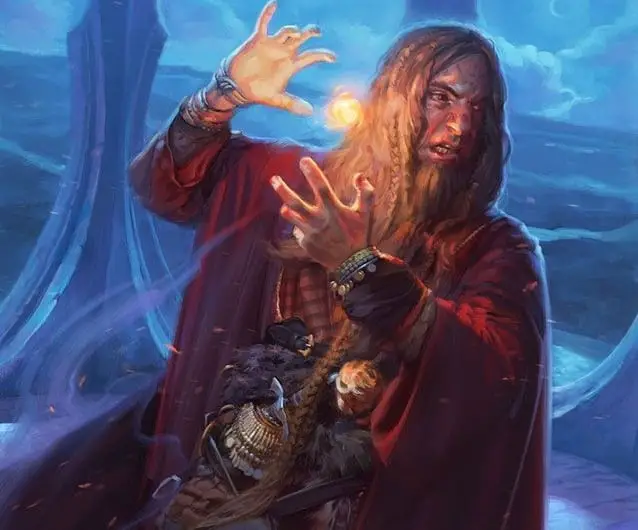
Sorcerer Class Features
So, let’s begin with the features that all Sorcerers have in common. If you’re making a Sorcerer character, these are the features that you’ll be getting from the core class.
It might seem like a small list, but each of these has a huge impact and will be important to consider when you’re looking at what subclass and spells to choose.
Sorcerous Origin (Level 1)
Sorcerers are one of the few classes (alongside Clerics and Warlocks) that pick their subclass right out of the gate at level 1.
No pressure, but it’s a pretty big decision!
Currently, there are 7 officially published Sorcerous Origins (subclasses) to choose from. Each of these has unique features that drastically change how your spells manifest and what you bring to the party.
| Book | Monastic Traditions |
| Player’s Handbook | Draconic Bloodline, Wild Magic |
| Sword Coast Adventurer’s Guide | Storm Sorcery |
| Xanathar’s Guide to Everything | Divine Soul, Storm Sorcery, Shadow Sorcery |
| Tasha’s Cauldron of Everything | Aberrant Mind, Clockwork Soul |
We’ll go over these Sorcerous Origins in more detail in the Subclasses section of this guide.
Font of Magic (Level 2)
Starting at level 2, you have a pool of resources called Sorcery Points. You have a number of these equal to your Sorcerer level and they recharge on a long rest.
Sorcerers use these points for various effects. They can be used to power your Metamagic features (which we’ll discuss in a moment) as well as to recover spells.
Using the Sorcerer’s Flexible Casting feature, you can convert Sorcery Points into spell slots. This is done as a bonus action on your turn and each use can recover one spell slot of up to level 5.
Any slots you create with this feature disappear when you finish a long rest.
Of course, you can also do the opposite. Converting spell slots into Sorcery Points can be incredibly helpful for making the most out of a Metamagic effect if you’re running low on those Sorcery Points.
Doing this also takes a bonus action on your turn.
Just note that you can’t have more Sorcery Points than your Sorcerer level. For example, a level 5 Sorcerer can’t have more than 5 Sorcery Points at any time.
| Spell Slot Level | Sorcery Points |
| 1 | 2 |
| 2 | 3 |
| 3 | 5 |
| 4 | 6 |
| 5 | 7 |
It will usually be more beneficial to recover Sorcery Points than spell slots, but there are situations where both are incredibly handy.
Knowing how to manage your resources with this feature is the key to playing your Sorcerer well!

Metamagic (Level 3)
The most iconic feature of the Sorcerer class is Metamagic. This is what Sorcerers use to tweak, stretch, and otherwise push the boundaries of the spells they cast.
It’s also the key distinction between Sorcerers and Wizards regarding how they cast their spells. Wizards focus on having the right spell for every situation while Sorcerers prefer to adapt their smaller set of spells to fit the situation’s needs.
Using Metamagic, you can increase the damage, range, or duration of a spell. You might also double a spell’s effect or be able to cast it as a bonus action instead of an action!
Needless to say, Metamagic is seriously cool!
I strongly recommend checking out my guide to Metamagic in 5e. That article goes into better detail about all the options that you have available with this feature and how they are used.
At level 3, you gain two Metamagic options of your choice. You’ll gain another at level 10 and yet another at level 17.
Choose wisely. If you’re clever, these should be plenty!
Each Metamagic option has unique effects on your spells and costs a different amount of Sorcery Points to use. Most spells can only benefit from one Metamagic option at a time, though there are some Metamagic options that ignore this restriction.
Sorcerous Restoration (Level 20)
The Sorcerer’s capstone feature is short and sweet but nice to have. With this feature, you recover 4 Sorcery Points at the end of a short rest.
It’s not a huge amount, but helpful to have. The standard adventuring day usually includes one or two short rests (rarely more), so it’s effectively an extra 4 to 8 Sorcery Points per day.
It’s nothing to write home about, but far from useless.
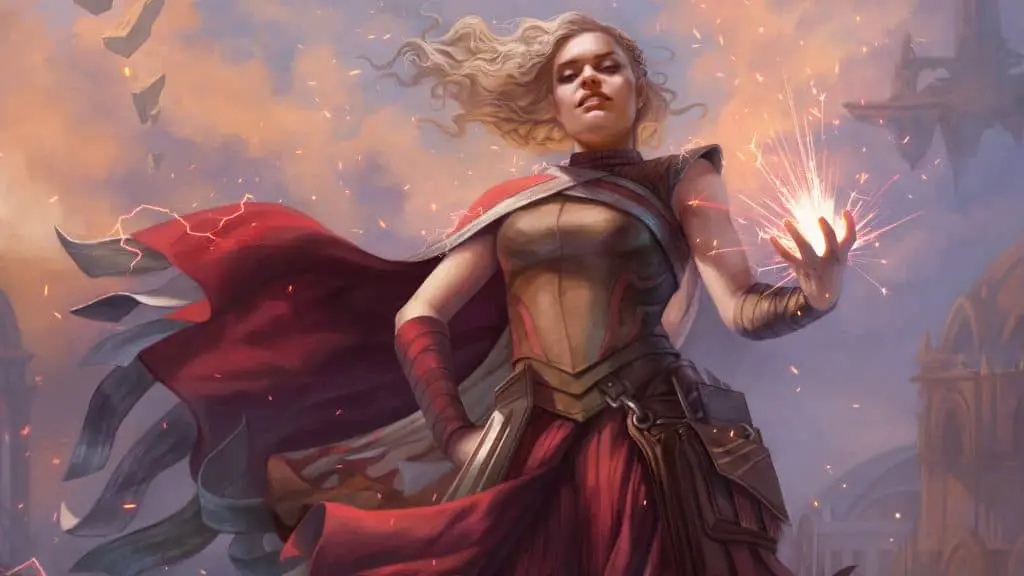
Sorcerer Spellcasting Explained
As a Sorcerer, casting spells is kind of your whole thing. So, it’s important that you have a clear idea of how it works.
Generally speaking, Sorcerers trade the ability to know a lot of spells for the ability to cast them more often and in unique ways with the use of Sorcery Points and Metamagic.
I mean, breaking the rules of spellcasting is a big part of what Sorcerers are known for. It’s hard to bend and break the rules if you don’t know them!
The Sorcerer Spell Table
Looking at the Sorcerer Spell table, you’ll see that there’s a big focus on cantrips and maximizing the effects of lower-level spells. When you’re choosing spells, make sure that they are dependable and also play well with your chosen Metamagic options!
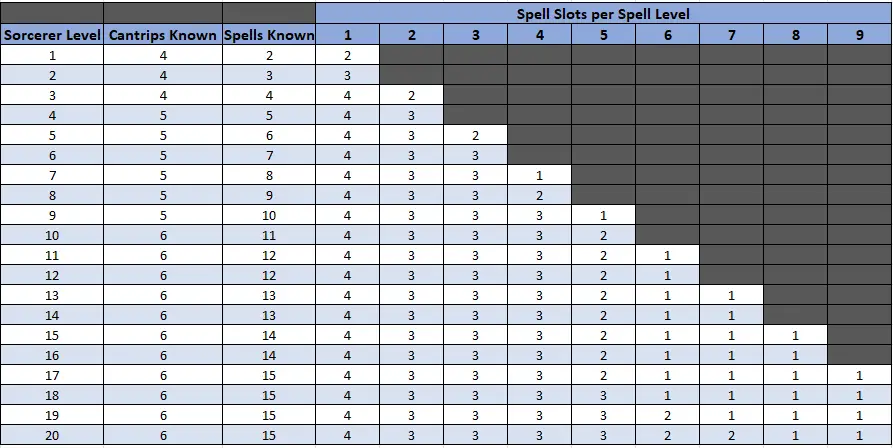
That’s not to say that you can’t have fun with higher-level spells. Just stay very focused on managing your resources and you’ll find that you have plenty of fun and unique ways to use your spells!
Casting Spells
Charisma is what powers a Sorcerer’s spellcasting. It’s this manifestation of the character’s will (with a bit of an arcane kick) that allows them to cast and manipulate spells as they do.
Anytime that a spell mentions your spellcasting ability, it’s talking about your Charisma.
This also directly affects your Spell Save DC (which other creatures must meet or beat to resist your spell effects) and your Spell Attack modifier (for when the spell you’re casting requires an attack roll to see if it hits.)
These are calculated as follows:
Spell Save DC = 8 + your proficiency bonus + Charisma modifier
Spell Attack modifier = your proficiency bonus + Charisma modifier
Spells Known
The number of spells that you can know is shown on the Sorcerer Spell Table. When you learn a new spell, it must be of a spell level that you can cast.
When you gain a Sorcerer level, you can replace one of your known spells with another from the Sorcerer spell list that you are able to cast. This gives you an opportunity to swap out a spell that you don’t use much for something more helpful.
Realistically, you will likely want to take advantage of this opportunity each time you level up.
You won’t want to always go for the biggest spells possible. Don’t be afraid to keep some lower-level spells handy that you can then upcast when you need to.
It pays to be picky with the spells you choose. Check out my list of the Best Sorcerer Spells by Level for some ideas!

Optional Class Features for Sorcerers from Tasha’s Cauldron
Sorcerers gained several new features in Tasha’s Cauldron of Everything. These are optional, but they add a lot to the experience of playing a Sorcerer.
Check with your DM to make sure that they’re cool with using content from TCoE in your game. (They probably won’t have a problem with it but going over what books can be used is an important part of a good Session Zero!)
Additional Sorcerer Spells
First things first, the Sorcerer spell list gets some extra love.
You’ll have at least one new spell option for each level. Most of the options that you gain are decent and are taken from the Wizard spell list.
These extra spell options give you plenty of extra ways to really build out your Sorcerer’s spell selection how you’d like.
Metamagic Options (Level 3)
Metamagic is a Sorcerer’s best friend so having two more options is very nice.
Seeking Spell lets you reroll a missed spell attack by spending sorcery points. Even better, you can apply it to a spell that you’ve already used a Metamagic option on.
Transmute Spell, on the other hand, lets you spend a sorcery point to change the damage type of a spell you cast. It’s handy for situations where you want the “oomph” of something like Fireball but want to get around enemies’ resistances or exploit a weakness.
Sorcerous Versatility (Level 4)
Arguably the best of the optional features from TCoE, Sorcerous Versatility lets you retrain a chosen cantrip or Metamagic when you reach a Sorcerer level that would normally give you an Ability Score Increase.
Let’s be honest, we’ve all chosen spells or features for our characters that just weren’t as useful as we had hoped. Sorcerers typically get stuck with those decisions, so being able to change them out is great.
You’ll still want to choose carefully. This feature lets you retrain a cantrip OR a Metamagic. Additionally, you’re only getting this option at levels 4, 8, 12, 16, and 19.
Since Sorcerers get plenty of cantrips, you’ll mostly be using this for swapping out Metamagics that you’ve outgrown.
Magical Guidance (Level 5)
Failing an ability check can sometimes have very severe consequences. At times like that, using Magical Guidance to spend a Sorcery Point and reroll can be a literal lifesaver!
This is another great feature for Sorcerers. It’s useful and really shows the theme of a Sorcerer’s inner power kicking in at just the right moment!

The Sorcerer’s Role in the Party
Sorcerers are capable of filling several important roles within a party. However, having a smaller selection of spells known with enhanced ways to use those spells favors being a specialist instead of a generalist.
You can do a “bit of this, a bit of that” build, but it’s best to have an idea of what specific role you’ll be filling in the party.
However, there are some roles that Sorcerers tend to fill more often than others.
- Blaster: You’ve got no shortage of options for blowing your enemies to bits.
- Controller: Keep enemies locked down to create openings for your party to strike.
- Face: Whether persuading, lying, or intimidating others, you’ve got the Charisma to back it up.
- Utility: Solve practical problems your party runs into.
- Striker: Use your spells to boost your combat abilities.
Depending on your build and party composition, your Sorcerer might fill other additional roles in the party. However, these are the big ones for most Sorcerers.
Sorcerous Origins (Subclasses)
Now that we’ve covered how the base Sorcerer class works, let’s take a look at your subclass options. If one sounds interesting to you, I’ll include a link to the guide for that specific subclass.
Moving on, you choose your Sorcerer’s subclass (or Sorcerous Origin) at level 1.
The features granted to you by your chosen Origin help you focus on specific roles within the party. Many of these features enhance existing Sorcerer abilities while also providing them with new ones.
It helps if you “work backward” when deciding what kind of Sorcerer you want to play.
Figure out what you want your character to do and what role they can fill first. You’ll have a much easier time figuring out what subclass to choose that way!
Of course, I have my own thoughts on how each of the Sorcerer subclasses ranks, but the best Sorcerer is ultimately the one that YOU want to play.
But let’s get into it!
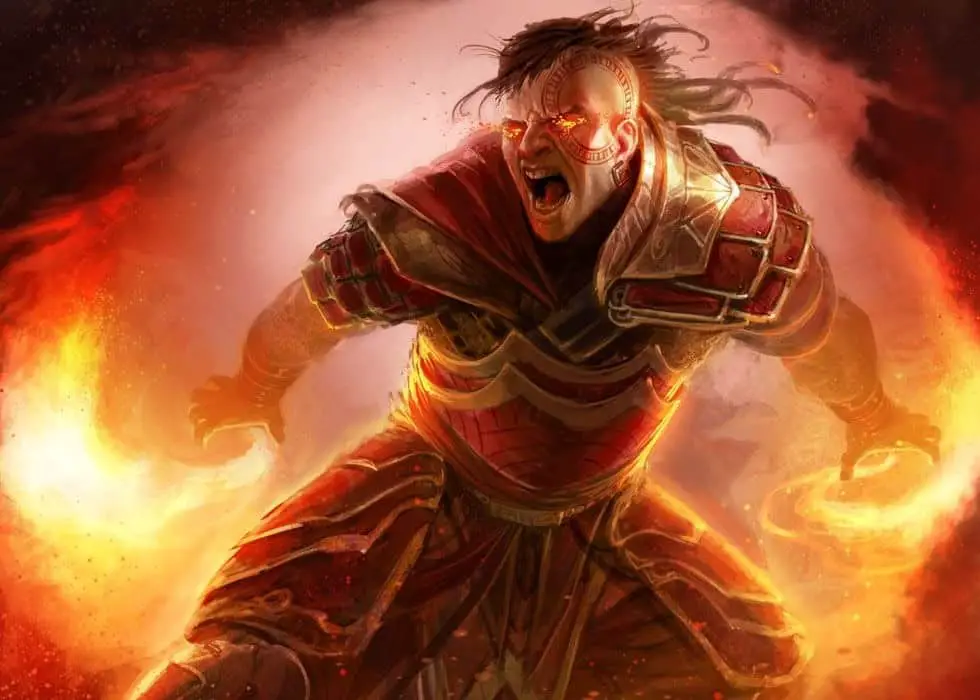
Draconic Bloodline
The blood of dragons flows in your veins. The powers that you gain from this might have been present in other family members or they might have lied dormant within your family’s blood for generations.
You’ll gain extra armor from the scales that grow on you while also buffing up the damage you deal of a given type based on your specific draconic ancestry.
- Draconic Ancestor: Determine a damage type for your other features, speak/read/write Draconic, double your proficiency bonus on Charisma checks when interacting with dragons.
- Draconic Resilience: Extra hit points as you level up, grow scales for extra armor.
- Elemental Affinity: Bonus to damage dealt based on your Draconic Ancestor type, spend sorcery points to gain resistance to that damage type.
- Dragon Wings: Sprout draconic wings and take to the skies!
- Draconic Presence: Inspire awe or fear in those around you with your presence.
Wake the dragon within you with the full guide to the Draconic Bloodline Sorcerer!
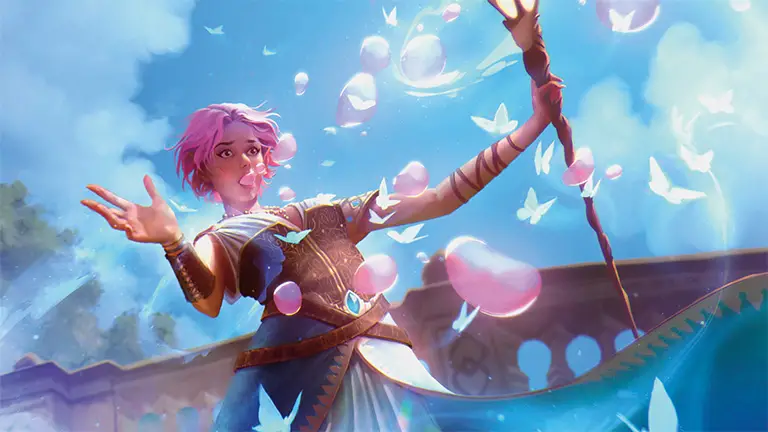
Wild Magic
Chaos and unpredictability abound as you twist luck and produce a number of unexpected and spectacular effects. Some will be extra beneficial while others will be neutral or even harmful.
Give yourself advantage on some rolls or apply bonuses/penalties to others’ rolls as you see fit.
- Wild Magic Surge: Potentially roll on the Wild Magic Surge table after casting a spell of level 1 or higher.
- Tides of Chaos: Gain advantage on an attack roll, ability check, or saving throw. Roll on the Wild Magic Surge table to use it again.
- Bend Luck: Spend sorcery points to apply a 1d4 bonus or penalty to another creature’s roll.
- Controlled Chaos: Gain more control over what happens when you roll on the Wild Magic Surge table.
- Spell Bombardment: Deal extra spell damage when rolling the highest number possible on a spell’s damage die.
Become chaos incarnate with the full guide to the Wild Magic Sorcerer!

Divine Soul
Imbued with divine power, Divine Soul Sorcerers mix Sorcerer and Cleric abilities to incredibly powerful effect.
Gain access to the Cleric spell list in addition to your Sorcerer spells. Improve your healing output, grow spectral wings, and become a support powerhouse.
- Divine Magic: Gain access to Cleric spells in addition to the Sorcerer spell list.
- Favored by the Gods: Add a bonus to your roll when you fail a saving throw or attack roll.
- Empowered Healing: Spend sorcery points to allow yourself or nearby allies to reroll any number of dice when restoring hit points.
- Otherworldly Wings: Grow spectral wings and take to the skies!
- Unearthly Recover: Use a bonus action to regain half of your maximum hit points.
Shine bright with the full guide to the Divine Soul Sorcerer!
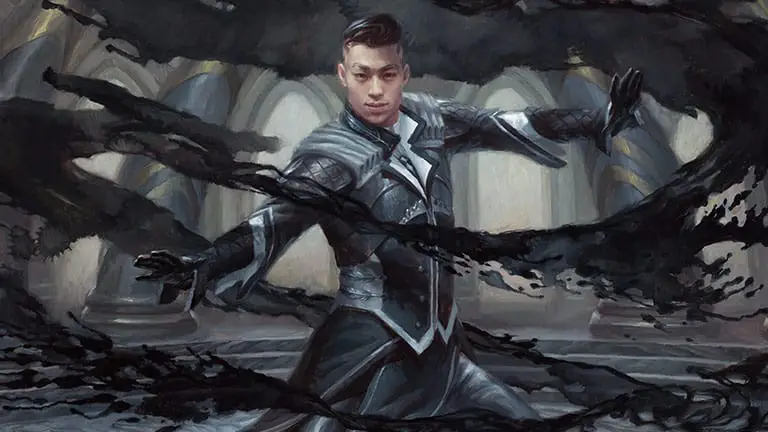
Shadow Sorcery
Channel the dark power of the Shadowfell to give your enemies a reason to be scared of the dark.
Survive attacks that would otherwise reduce you to 0 hit points, summon a shadowy hound to aid you, and teleport through the darkness.
- Eyes of the Dark: Enhanced darkvision and the ability to create magical darkness.
- Strength of the Grave: Make a Charisma save to drop to 1 hit point instead of 0 when taking damage that would otherwise knock you unconscious.
- Hound of Ill Omen: Summon a shadow hound to harass your enemies by chasing them down, attacking, and giving nearby enemies disadvantage on saving throws against your spells.
- Shadow Walk: Teleport through darkness up to 120 feet at a time.
- Umbral Form: Take a shadowy form that resists damage and can pass through creatures and objects.
Harness the darkness with this full guide to the Shadow Sorcerer!

Storm Sorcery
Master the elemental force of air to bring the raw power of the storm upon your enemies.
Zip around the battlefield to outmaneuver foes and crush them with thunder and lightning damage. Punish enemies who get too close before taking to the skies.
- Wind Speaker: Speak, read, and write Primordial.
- Tempestuous Magic: Use a bonus action for an extra 10 feet of flight before or after casting a spell. This movement does not provoke opportunity attacks.
- Heart of the Storm: Resist lightning and thunder damage. Additionally, casting spells that deal lightning or thunder allows you to deal extra damage to creatures within 10 feet of you.
- Storm Guide: Control the wind and rain around you.
- Storm’s Fury: Deal lightning damage to an enemy that hits you with a melee attack and possibly throw them up to 20 feet back.
- Wind Soul: Become immune to lightning and thunder damage. You also a flying speed that you can share with your allies.
Ride the lightning with the guide to the Storm Sorcerer!
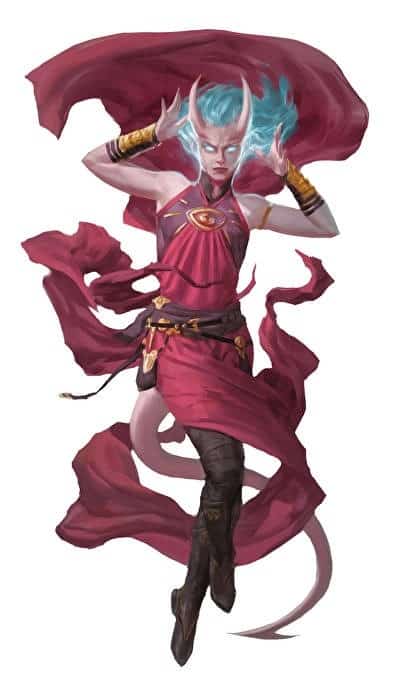
Aberrant Mind
Combine otherworldly psionic power with raw arcane talent to an incredibly powerful effect.
Access a huge list of expanded spells, play mind games with those around you, and defy reality as you transform into an otherworldly form.
- Psionic Spells: Gain additional spells with plenty of psychic and tentacle-y flavor.
- Telepathic Speech: Communicate directly into the minds of others.
- Psionic Sorcery: Cast your Psionic Spells using Sorcery Points and without components.
- Psychic Defenses: Resist psychic damage and gain advantage on saves against being charmed or frightened.
- Revelation in Flesh: Transform your body gaining extra benefits based on the transformation you choose. Terrify friends and enemies alike.
- Warping Implosion: Teleport away, pulling creatures within 30 feet of you towards the space you left.
Get weird with the full guide to the Aberrant Mind Sorcerer!

Clockwork Soul
Maintain Order in the world around you to offer protection for yourself and others.
Override advantage/disadvantage on dice rolls, summon wards that reduce incoming damage, and call forth spirits of Order to help you keep things (and people) in tip-top shape.
- Clockwork Magic: Gain additional spells with a focus on buffing and supporting.
- Restore Balance: Use your reaction to cancel advantage or disadvantage on a roll.
- Bastion of Law: Spend Sorcery Points to create wards around yourself or others that reduce the damage that they take.
- Trance of Order: Enter a state for 1 minute that prevents enemies from having advantage on attacks against you. You also can’t roll lower than a 10 on attack rolls, ability checks, or saving throws while in this state.
- Clockwork Cavalcade: Summon spirits of constructs to rid the area of disorder by restoring hit points, repairing damaged objects, and dispelling spell effects.
Make some time with the full guide to the Clockwork Soul Sorcerer!
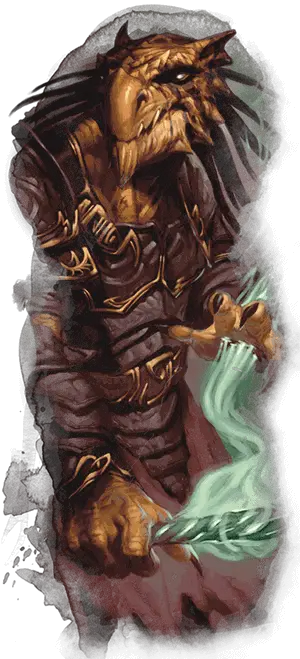
Optimization Tips for Sorcerers in D&D 5e
We’re nearing the end of this guide, so let’s go over some optimization tips for your Sorcerer in D&D 5e!
There is no shortage of ways to build and optimize your Sorcerer. It all depends on what role you are filling in the party, how you want to fill that role, and what you find interesting.
These are just some tips and pointers that will help you make a character that plays well.
As a quick disclaimer, I’m not saying that this is the ONLY way to build an optimized Sorcerer. There are endless discussions that could be had about that, but it all falls back to the same criteria that I mentioned.
Instead, I want to focus on what your primary considerations should be in the general sense.
Don’t be afraid to take these ideas and remix them to suit your specific vision for your character. At the end of the day, it is about playing the character that you want to play.
But with that said, let’s get into some quick tips to help you out!
Ability Scores for Sorcerers in D&D 5e
We’ll take it from the top with your ability scores!
Charisma is your most important ability score as a Sorcerer. After all, it’s what powers your spellcasting!
As one of the squishiest classes in D&D 5e, don’t neglect your Constitution score though. Fortunately, it’s helpful for helping you maintain concentration on spells in addition to giving you more hit points.
Dexterity is necessary for your armor class but will also come in handy if you are also wanting to mix in attacks with ranged or finesse weapons.
- Strength: Leave the heavy lifting to the others and make this your dump stat.
- Dexterity: Since Dexterity is directly tied to your armor class, you don’t want to skimp on this score. Bit of a toss-up between this or Constitution, but it’s definitely in your top 3 most important ability scores.
- Constitution: More Constitution means more hit points which, as it just so happens, Sorcerers don’t get a whole lot of. Higher Constitution means you can take hits better as well as better maintain concentration on your spells. I’d lean towards making this your second priority after Charisma.
- Intelligence: Even though you use Charisma for your spellcasting, some Intelligence is handy if only for Arcana checks to determine spells and other magical effects.
- Wisdom: Having some observation skills is always handy, so I wouldn’t necessarily dump this ability score. However, it’s not one of your more important ones.
- Charisma: This is your most important ability score. Invest heavily in Charisma to keep your spells and features in top shape.
Also Check Out: 5 Ways to Determine Ability Scores in D&D 5e
Best Races for Sorcerers in D&D 5e
Tasha’s Cauldron of Everything introduced optional new rules that remove how your chosen character race affects your ability scores. However, not all groups use that rule.
If you are looking to optimize your Sorcerer and are not using the Custom Origin rules from TCoE, these are some of the more optimized choices for your Sorcerer.
Rather than making an exhaustive list of every single race, these are just a few standouts. Feel free to add more suggestions in the comments!
Once again, though, don’t hesitate to try something outside this list. You may be surprised!
- Changeling: +2 to your Charisma is excellent and you can use the extra ability score increase for a +1 to either your Dexterity or Constitution as you prefer. Oh, and, of course, shapechanging is great!
- Dragonborn: A +1 to Charisma is helpful for Sorcerers and the +2 to Strength can help you avoid having a negative modifier if you make that your dump stat. Both mechanically and thematically, Dragonborn stand out as Sorcerers!
- Dwarf (Mountain): An unconventional pick since you won’t be getting a Charisma buff. However, Mountain Dwarves’ armor proficiency will make you noticeably less squishy.
- Elf (Eladrin): +2 Dex is great for your AC while the +1 Charisma bonus will help your spellcasting. Fey step is an excellent short-range teleport for getting into or out of situations.
- Half-Elf: +2 to Charisma as well as two +1 ability score bonuses to apply as you see fit is great. Add in the two extra skill proficiencies and you’ve got a truly spectacular option.
- Tiefling: Once again, that +2 Charisma is hard to beat. Gaining fire resistance and a selection of excellent racial abilities make Tieflings standout options as Sorcerers.
- Variant Human: Variant Humans are so adaptable that they can pretty much do anything. Getting that extra starting feat is incredibly enticing and lets you pick up some powerful additions to your Sorcerer’s kit right from the start. Throwing in two +1 increases and a skill proficiency makes this a strong option.
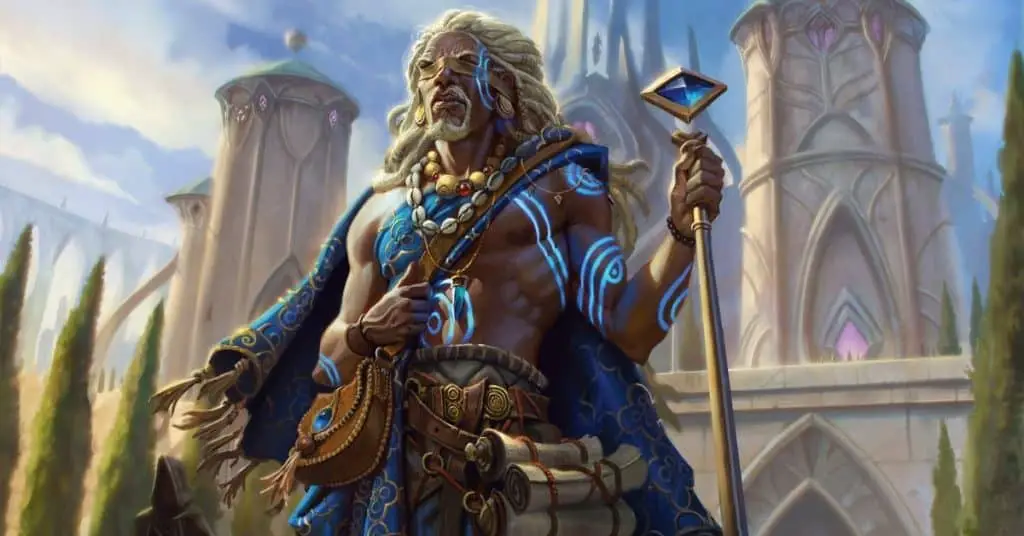
Backgrounds for Sorcerers in D&D 5e
Sorcerers come from many different backgrounds and there aren’t many bad choices. However, there are some that stand out from the rest!
Preference is given here to those that work with your Charisma as well as give you some extra skills that help you in your role.
- Courtier: Great if you’re the party’s Face. Insight and Persuasion are handy and the two languages can be useful.
- Faction Agent: Insight plus your choice from a wide selection of skills and two languages makes this a safe bet.
- Far Traveler: I mostly like this one for the theme of a wandering Sorcerer. Insight and Perception are great proficiencies to have and the bonus language is nice.
- Guild Artisan: Possibly an odd choice, but the Insight and Persuasion skills (as well as bonus language) are nice. You may or may not get use out of the artisan’s tools.
- Urban Bounty Hunter: Choice of two skills from a nice selection as well as extra tool proficiencies.
- Urchin: Throwing this in if only for the theme. Something about this background combined with the greater destiny achieved through mastering one’s inner potential and gifts is just really cool to me. The Stealth and Slight of Hand skills and tool proficiencies play best if you want to be sneakier (Shadow and Aberrant Mind Sorcerers immediately come to mind with this.)
Best Feats for Sorcerers in D&D 5e
Finally, let’s look at some feats that are worth looking at for any Sorcerer.
Generally speaking, you will want to prioritize boosting your Charisma score more than anything. From there, it’s much easier to look at taking feats if you don’t want to use your Ability Score Increases to boost your other abilities.
But sometimes you’ll need to pick up a feat earlier if you’re trying to build your character towards a specific concept or if you’ve chosen to play a Variant Human.
- Inspiring Leader: You’ve got excellent Charisma so using it to provide your party with temporary hit points is fantastic.
- Metamagic Adept: Grab this to pick up an extra Metamagic feature and two more sorcery points. Just note that these sorcery points can only be used for your Metamagic features so be sure to mark that on your character sheet. If you need more Metamagic options, this is great.
- Ritual Caster: Sorcerers can’t cast ritual spells which means you’ll need to take this if you want to do so. If you have another ritual caster in the party, this probably won’t be worth it. Otherwise, it can be a good way to manage your spell resources more efficiently.
- Telekinetic: Bump your Charisma (or INT or WIS) by +1 and learn the always-useful Mage Hand cantrip. Most importantly, this is an excellent use of your bonus action to add in extra tactics like pushing/pulling enemies into environmental hazards or into more favorable positions for your party.
- Fey Touched / Shadow Touched: Either of these is useful for adding more spells to your repertoire. The other options on this list are generally better, but this is a way to get access to more spells if you find yourself needing more selection.
Related: Feats in D&D 5e Explained
Conclusion – The Complete Guide to the Sorcerer Class in D&D 5e
Maybe it’s just me, but it seems like Sorcerers don’t get a lot of love. I think that mostly comes from how unique and admittedly confusing their spellcasting is.
More than pretty much any other caster, you really want to focus heavily on efficiently managing your resources. If you can do this, you’ve got everything you need to do more with less.
Seriously, it’s hard to overstate just how impactful Font of Magic and Metamagic are. Being able to dig deep and use Sorcery Points to recover spell slots or drastically change how a spell works can have a massive impact on your game.
This is a class that is just overflowing with potential in both mechanics and theme!
But anyways…
I hope that you’ve found this complete guide to the Sorcerer in D&D 5e helpful. If you have any questions or thoughts regarding Sorcerers in D&D 5e (or just want to say hi!), reach out in the comments!
Also…
Don’t forget to sign up for the Tabletop Joab newsletter! It’s the best way to get all the latest player guides, DM Tips, news, reviews, and more for D&D 5e right to your inbox!
You can also follow me on Facebook and Twitter.
If you found this article helpful and want to support the site, you can buy me a coffee here! (It’s not expected, but very appreciated!)

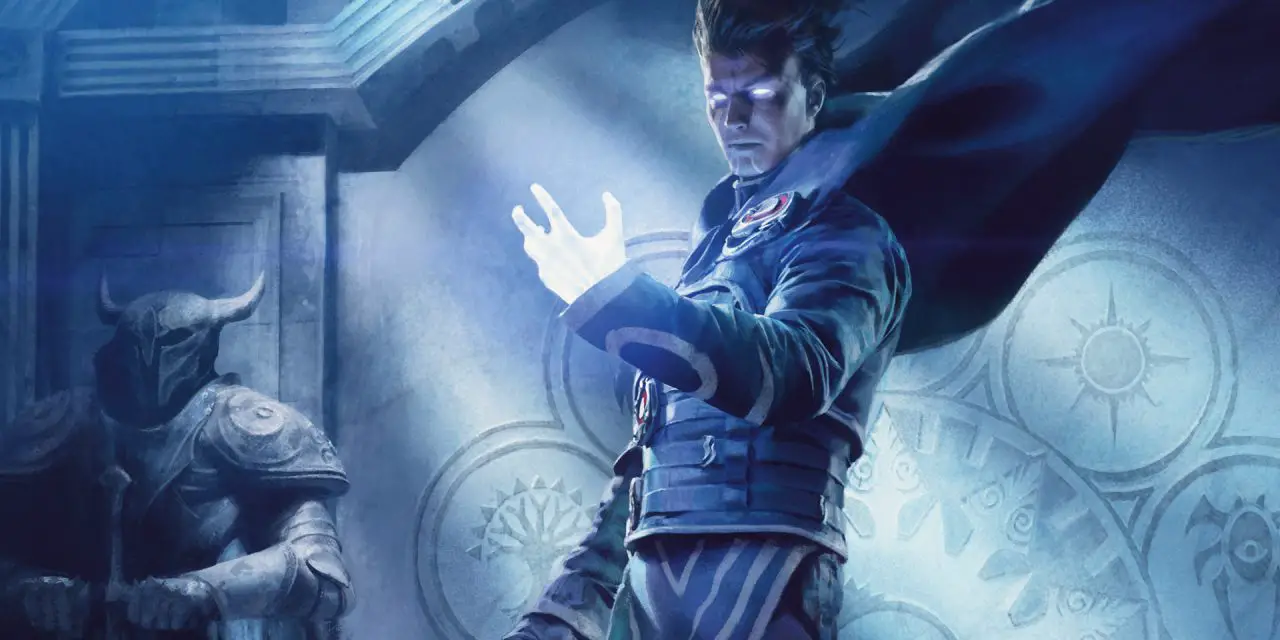



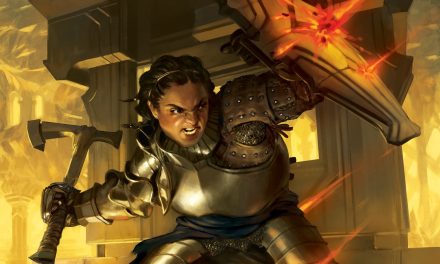
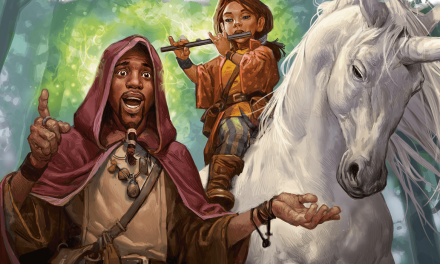



Sorcerers have always been one of the more interesting classes to me. Metamagic is a fun way to improve spellcasting. I’d like to see more Sorcerer subclasses, maybe one with a fey theme, but Wild Magic already leans into that territory. Sorcerers definitely need more love.
Hey Arp!
It actually did catch me off guard when I was writing the Sorcerer subclass guides. It always seemed like there were more subclasses!
But we’ve got a Lunar Magic subclass to look forward to when the Dragonlance book releases in December! Based on the playtest material for it, I’m really excited! 🙂
Yeah, from what I’ve seen in the UA material, it looks interesting, but pretty complicated. It’ll probably be revised, so it’ll be cool to see what they finally settled on.
It’s definitely unique. I very nearly went ahead and wrote a guide for it (with the disclosure that it is currently playtest material), but decided against it.
However, I am excited to see the published version and will update my subclass ranking and this guide once it’s released! 🙂
On the races: I have found a pleasure in playing a Dragonborn Sorcerer. Dragonborn have bonus to Charisma, which is suitable, and a bonus to Strength, which seems useless… however, that allows one to dump Strength without having negative modifiers in it. Moreover, Breath Weapon gives additional attack that does not require a spell slot. Dragonborn are especially suitable for elemental sorcerers; they already have an inbuilt resist, and so you may get two simultaneously.
Personally, I have a copper Dragonborn who is a Draconic Sorcerer with bronze lineage – so he has constant resistance to acid and may get a temporary resistance to lightning. Well, it would be great to get him both Staff of Frost and Staff of Fire…)
If we take into account Fizban’s version of Dragonborn, it will be even more interesting and thematically improving. Let’s take a Topaz Dragonborn (necrotic) and make a Shadow Sorcerer. Or take a Crystal one (radiant) and make… yes, a Divine Soul.
(I have a weak spot towards Gem dragons and Dragonborn, I admit. Actually, I have a weak spot towards dragons in general).
Hi V-Z!
Oh my goodness, I could have sworn I included Dragonborn in this guide but I apparently didn’t. Thank you for catching that and I’ll update it shortly!
Dragonborn make excellent Sorcerers. Like you, I also especially LOVE the Gem options from Fizban’s Treasury!
By the way. Have you, by any chance, read Knuckleheads and Other Such Curiosities? It is a DMGuild product, but marked as Adventure League-legal and even included into official catalogues, so I tend to take it as an official source. And it contains, among other content, several new archetypes, including Sorcerer, Barbarian, Cleric and Bard.
Hi V-Z!
I haven’t checked that out but I will have to do so!